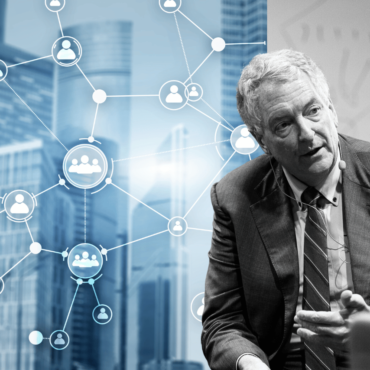

By David C Forman, bestselling author “Fearless Talent Choices”
WHY SHOULD YOU CARE?
“The illiterate in the 21st century will not be those who cannot read and write, but those who cannot learn, relearn and unlearn.” – Alvin Toffler
The learning profession has sought legitimacy for years. It has been a second-class corporate citizen, often the first function to be cut and the last to be appreciated. The result has been a profession with a confidence and execution problem. However, a big reason for this predicament is self-inflicted. For decades, despite the understanding that training is only a small fraction of professional development (the 10 in the 70/20/10), the profession behaved as if it only provided formal training programs, many of which were marginally related to business issues and requirements.
But two conditions have changed. The first is that meaningful and impactful learning matters to employees. It’s not a perk, it matters. It is one of the top three reasons that people want to join and commit to an organization. The type of learning (not training) that makes a difference is offering a range of varied experiences, providing stretch assignments to perform important tasks, working across boundaries, being part of high performing teams, and interacting with valued colleagues. The essence of learning, then, is providing new and varied experiences that challenge us. Employees understand that continuing to sharpen and broaden these new experiences is their greatest form of security, inside or outside their organization. Learning is now an engagement issue; and given the high cost of losing a valued employee—over $1 million for a strong performer—providing opportunities for people to learn and grow is not only the right thing to do, but also the right business decision.
The second change is that the world has shifted underneath our feet like never before. Stability has vanished. The pandemic is the most tangible example of how the world is characterized by unrelenting change, growing global interdependence and uncertain futures. More turbulence is on the way, and learning becomes essential to navigating these restless waters.
Learning Becomes an Essential Skill
“Given the increasing rate of change of technologies, the fourth industrial revolution will demand and place more emphasis on the ability of workers to adapt continuously and learn new skills and approaches.” Klaus Schwab
“In times of drastic change, it is the learners that inherit the future.” Eric Hoffer
“Don’t be a know-it-all; be a learn-it-all.” Satya Nadella
“The illiterate in the 21st century will not be those who cannot read and write, but those who cannot learn, relearn and unlearn.” Alvin Toffler
“All of us—everyone of us—will be endless newbies in the future simply trying to keep up.” Kevin Kelly
“Maximizing human potential is now the primary purpose of all organizations.” James Clifton and James Harder
There is a new urgency and vitality to learning in these uncertain times. The World Economic Forum (2020), for example, states that 50% of all employees will need reskilling by 2025. And for those who do not need reskilling, they will require upskilling to be productive. Virtually everyone will be learning something new as an increasingly important part of their job.
But this opportunity must not be wasted by repeating past failures. Many current skilling programs focus on libraries of domain-specific packaged courses. These may be useful, but are insufficient for the type of learning that can make the biggest impact in a world of relentless change. What happens, for example, when conditions change, and people are asked to do different things? Or when their technical knowledge becomes obsolete after several years? Or when emerging smart technologies redefines the balance between work and leisure?
Increasingly, learning initiatives are not focusing on perishable technical skills, but on meta-skills that endure and have multiple uses. These higher level thinking skills enable other skills to be used, developed, and further leveraged. They are master skills (also known as power or durable skills) that are the catalyst for building new skills faster and achieving self-sufficiency. Speaking a language, for example, is a skill, but learning a new language quickly is a meta-skill that can lead to learning other languages in the future.
Neumeyer identifies meta-skills leading to being more adaptable and agile as: Feeling, Seeing, Dreaming, Making and Learning (2012). Razzetti (2020) sees the key to adaptability (and future success) being Self-awareness, Creativity and Resilience. While these meta-skills are a valuable step forward, many are quite general and subjective. I have attempted to recognize the ones that (I believe) apply to the workplace, improve awareness and readiness for uncertain futures ahead, unleash talent at all levels, and can be implemented.
Seven Learning Meta Skills for the Future
These seven meta-skills are a mixture of different traits, characteristics, and attitudes. Most are people-related, cross-disciplinary, and in the affective domain. They reflect the often messy reality in the world today; and, most importantly, they all can be learned. Some people, for example, are more inherently curious than others; but we all can become more curious with diligence, coaching, practice, and reflection.
- Gritty Learning Mindset. This is at the top of the list because nothing happens unless people believe they must learn new skills to be effective in a changing world. If they feel entitled or have the attitude that they are too smart or senior to adjust again (and again), then they will be left behind. IBM recognizes the importance of this attitude (mindset) by identifying “propensity to learn” as the most important quality for a new hire.
The word “gritty” comes from Angela Duckworth as she speaks to the power of perseverance and follow-through. People who demonstrate ‘humbition’ are very likely to be gritty. Humbition is derived from two words—humility and ambition—and it means that a person is not arrogant, entitled, above it all, willing to work hard, distributes praise, and is wise enough to know that there is a lot more to know.
KPIs: Wants to learn more, always tries to improve, volunteers for new projects, coaches others, doesn’t back away from difficult challenges, recognizes that learning is a survival skill in a fast changing world.
- Learning Velocity. Learning agility is the ability to learn new things. Learning velocity adds the element of quickness and speed. In a world that moves fast, windows of opportunity close quickly. If it takes too long to become proficient, competitors can seize the initiative. This skill can be practiced and refined by addressing new problems, working on unencountered examples, using professional networks, seeking coaching from experienced colleagues, joining new teams and groups, and challenging yourself under pressure conditions. The example of front-line workers in the pandemic is a great illustration of ‘learning velocity’ and how adjustments on the fly saved thousands of lives.
KPIs: Understands urgency and closing windows of opportunity, tracks time spent, simplifies learning processes, focuses on the critical few things to know, is not afraid to learn from mistakes, monitors value of contributions.
- Curiosity. This meta-skill may be the most surprising, but it is vital to innovation, diversity of thought, challenging old conventions, addressing unintended bias, and reinforcing psychological safety. It also leads to thoughtful conversations, truer collaborations, and is at the heart of the scientific method. Great innovations rarely come from a single scientist shouting “Eureka;” but rather from a group of colleagues observing a phenomenon and asking ‘why.’
While curiosity may seem more of a personal trait, there are ways to intentionally become more curious. It is primarily about being observant, an active listener, and the timely use of simple questions. An environment that supports questioning, constructive challenges, and curiosity is also essential. Examples are work out sessions at GE, Kaizen at Toyota, and reviewing dailies at Pixar.
KPIs: Asks probing questions such as ‘why did this happen or why should we do it this way?’, uncovers real reasons for a problem and not just symptoms, looks for unintended and unanticipated consequences, is not satisfied with quick and easy answers.
- Anticipating Change. The last year has shown us that it is every leader’s job to be able to sense and anticipate possible futures. The Pandemic is but one example of the value in helping our organizations “see around corners,” so that we can prepare now. If we wait for the few people at the top to figure this out, it is already too late. As one CEO has remarked, “There are two types of companies today, the quick and the dead.” It is much better to be the former than the latter.
This meta-skill can be enhanced with practice developing different scenarios. The first step is to brainstorm possible—not just likely or probable—futures. When these various possibilities have been listed, then the prioritization process can begin by focusing on those that can have the biggest impact and are likely to occur. Once this significant subset has been identified, then the needed skills to address these futures can be defined and developed proactively.
KPIs: Thinks beyond the short-term, takes the blinders off, exhibits possibilistic thinking, is aware of the external factors that can impact the business.
- Resilience. This meta-skill is not a surprise, it is the by-product of a fast-changing, highly interconnected, and uncertain world. Disruption and turbulence are everywhere, and if not addressed, they become debilitating. People must be able to bounce back from disappointment, pick themselves up, and get back in the game. In a world that values speed, there will be bumps in the road. Most innovations fail. It is important to view these as learning moments, as opposed to failures or shortcomings.
A strong inner belief and self-awareness is at the heart of being resilient. If a person is mindful of his or her strengths, values and core relationships, stress and disappointment can be addressed more easily and less personally. It is easy to segment what really matters from business issues and challenges. Coaching and guidance from respected colleagues can be very beneficial in developing this awareness.
KPIs: Has a positive attitude, is not afraid to take risks, admits mistakes, helps others through problems, bounces back quickly, moves on to the next challenge.
- Influencing Others. Most of us do not live or work alone. Human beings are social animals and our ability to communicate and work together will be vital to our efforts to survive and thrive. In organizations today, more than 80% of the work is done in small, agile, diverse teams. Our ability to influence, persuade, and learn from others is essential. As Dan Pink (2015) has said, we are all in the moving business—that is, moving the thoughts and opinions of others; and we spend about 40% of our time attempting to do so. Furthermore, as social capital becomes more and more significant to organizational success, the meta-skill of influencing others provides tremendous leverage.
There are certainly other meta-skills that pertain to the interactions among people. Among the most often recited are EQ, empathy, active listening, servant leadership, and mindfulness. Most all of these involve the extension of trust as the currency for strong relationships and sense of community.
KPIs: Values other perspectives, is attuned to how others think about a problem, extends trust, has the best interest of others in mind, follows through on commitments.
- Systems Thinking. This cognitive skill is about seeing the bigger picture in a highly interconnected world. There are pressures to retreat to our own silo, focus only on what can be controlled, and not be concerned about what exists beyond a narrow perspective. These views are not only short-sighted but are dangerously out-of-touch. Instead, there is a need to see how the various parts of the organization interact, and are impacted by an array of internal and external factors.
KPIs: Looks for connections and linkages, works with internal and external partners, builds on relationships, seeks leverage.
Final Thoughts
The best preparation for the uncertain futures that lie ahead is to enable people to drive their own learning and develop the meta-skills that can be used (again and again) as they encounter new challenges. There is nothing wrong with technical training on specific skills. But these solutions are not enough. They do not address the fundamental problem of how to be successful in a world that is always in flux. Meta-skills can help to address these issues, solve the right problem, and improve readiness for the years ahead. When this happens, the learning profession moves from a support function to a required strategic capability. A renaissance, indeed.
Meet the author at the upcoming Talent@Work Forum
Written by: Dave Forman
Employee Engagement Future of Work HR Strategy Learning Talent Management
Previous post

- 3129
labelArticles today2022.03.29.
Five Steps to Integrating Coaching into your Talent and Leadership Development Strategies
Renee Robertson PCC, SHRM- SCP, Founding Executive for the International Coaching Federation’s Coaching in Organizations WHY SHOULD YOU CARE?It is more difficult than ever to adapt to our ever-changing world. [...]
Similar posts

labelArticles today2024.07.24.
AI-Powered HR: Strategic Benefits and Practical Applications

labelArticles today2024.06.24.









Post comments (0)